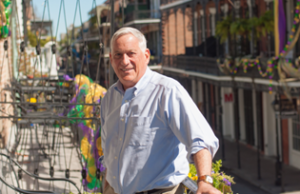Recordings of the Outstanding Plenary Sessions are now available:
| Plenary Session 1 – Walter Isaacson and David Tennenhouse |
| Plenary Session 2 – Sebastien Ziegler – European R&D Investments in IoT |
| Plenary Session 3 – Thyaga Nandagopal – US R&D Investments in IoT |
Monday June 21st, 2021 — Plenary Session — 10:30am-12:30pm ET
Keynote Speaker: Walter Isaacson
Walter Isaacson is the Leonard Lauder Professor of American History and Values at Tulane. He is the past CEO of the Aspen Institute, where he is now a Distinguished Fellow, and has been the chairman of CNN and the editor of TIME magazine.
Isaacson’s most recent biography, Leonardo da Vinci (2017), offers new discoveries about Leonardo’s life and work, weaving a narrative that connects his art to his science. He is also the author of The Innovators: How a Group of Hackers, Geniuses, and Geeks Created the Digital Revolution (2014), Steve Jobs (2011), Einstein: His Life and Universe (2007), Benjamin Franklin: An American Life (2003), and Kissinger: A Biography (1992), and coauthor of The Wise Men: Six Friends and the World They Made (1986).
He is a host of the show “Amanpour and Company” on PBS and CNN, a contributor to CNBC, and host of the podcast “Trailblazers, from Dell Technologies.”
Isaacson was born on May 20, 1952, in New Orleans. He is a graduate of Harvard College and of Pembroke College of Oxford University. He began his career at The Sunday Times of London and then the New Orleans Times-Picayune. He joined TIME in 1978 and served as a political correspondent, national editor, and editor of digital media before becoming the magazine’s 14th editor in 1996. He became chairman and CEO of CNN in 2001, and then president and CEO of the Aspen Institute in 2003.
He is chair emeritus of Teach for America. From 2005-2007 he was the vice-chair of the Louisiana Recovery Authority, which oversaw the rebuilding after Hurricane Katrina. He was appointed by President Barack Obama and confirmed by the Senate to serve as the chairman of the Broadcasting Board of Governors, which runs Voice of America, Radio Free Europe, and other international broadcasts of the United States, a position he held from 2009 to 2012. He had been a member of the New Orleans City Planning Commission.
He is a member of the American Academy of Arts and Sciences, the Royal Society of the Arts, and the American Philosophical Society. He is a fellow of Lowell House at Harvard and of Pembroke College at Oxford. He serves on the board of United Airlines, Bloomberg Philanthropies, the Society of American Historians, New Schools for New Orleans, the U.S. Defense Department Innovation Board, and My Brother’s Keeper Alliance. He is an advisory partner at Perella Weinberg, a financial services firm based in New York City.
Keynote Speaker: David Tennehouse, SVP, Chief Research Officer, VMware Inc., Palo Alto, CA USA
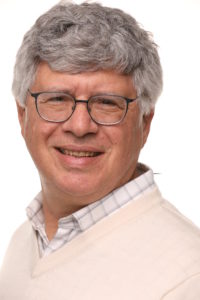 David leads the research & innovation activities that are accelerating and extending VMware’s technology leadership. He also represents VMware’s technology strategy to government customers worldwide.
David leads the research & innovation activities that are accelerating and extending VMware’s technology leadership. He also represents VMware’s technology strategy to government customers worldwide.
David has a track record of driving innovation in multiple domains. He has worked in academia, as a faculty member at MIT; in government, at DARPA; in industry at Intel, Amazon/A9.com and Microsoft; and as a partner in a venture capital firm. Dr. Tennenhouse has been involved in the strategic planning and execution of programs related to a wide range of technologies, including distributed/cloud computing, blockchain, networking, computer architecture, storage, wireless communications, machine learning, search/advertising, IoT, robotics, MEMs, healthcare, and nano/bio-technology.
David holds a BASc and MASc in Electrical Engineering from the University of Toronto and obtained his PhD at the University of Cambridge. He is a member of the ACM, a Fellow of the IEEE, and a member of the FCC’s Technological Advisory Council.
Plenary Keynote Talk Title: Getting IoT Under Control
Abstract: Enterprise-scale IoT typically involves control loops and decentralized control systems that are implemented in software. Creating control software that is both efficient and correct is notoriously difficult and, in contrast to Consumer IoT, failures of this software can have very significant negative consequences. So, what if we could get the computers to do much more of the programming? This keynote will discuss two approaches to doing so: one is based on research advances in the certification of machine learning models; and the other leverages database-like declarative methods.
Tuesday June 22nd, 2021 — Plenary Panel — 10:30am-12:30pm EDT
“European IoT Research and Large Scale Pilots – Lessons Learned and Future Research Perspectives”
This session will provide an overview of the European Community research program achievements and plans for the Internet of Things. It will present lessons learned from European research projects and from the EU Internet of Things large scale pilots. It will start with a general introduction and will then present the program results across various verticals, ranging from Smart Cities, to eHealth, to Smart Agriculture. The session will then discuss the future EU research roadmap on Internet of Things, Edge, and Cloud Computing foreseen in the upcoming European research program. It will more specifically discuss and explore the options to strengthen international cooperation for the Internet of Things and Networking Technology research domains, from an international research infrastructure perspective. The session will conclude with an open discussion with the participants.
Panelists:
- Chair and Introduction
Dr. Sébastien Ziegler, Mandat International, IoT Forum President, Geneva, Switzerland
- European Research Program, Main Achievements and Lessons Learned
Dr. Rolf Riemenschneider, Head of Sector “Internet of Things”, DG CONNECT, European Commission, Brussels, Belgium
- Smart Cities Perspective
Dr. Martin Brynskov, Chair of OASC, Aahrus University, Aarhus, Denmark- Project: SYNCHRONICITY (https://synchronicity-iot.eu/)
- Smart Agriculture Perspective
Dr. Kevin Doolin, Telecommunications Software and Systems Group (TSSG), Waterford Institute of Technology, Waterford, Ireland
-
- Project: DEMETER (https://h2020-demeter.eu/)
- Smart Energy Perspective
Dr. Antonio Kung, CEO and Co-Founder of Trialog- Project: INTERCONNECT (https://interconnectproject.eu/)
- European Research Infrastructure
Professor Serge Fdida, Sorbonne Université, SLICES, Paris, France
-
- Project : SLICES (https://slices-ri.eu/)
- Priorities for the Upcoming Horizon European Research Program
Dr. Max Lemke, Head of Unit for Internet of Things in Directorate General CONNECT, European Commission, Brussels, Belgium
Panel Moderator: Sébastien Ziegler, Mandat International, Geneva, Switzerland
Dr. Sébastien Ziegler is a founder and the Director general of Mandat International, a foundation promoting international cooperation and international research. He serves as President of the International Internet of Things Forum (IoT Forum) and IoT Lab, as Chair of the Europrivacy International Board of Experts, as Rapporteur on Emerging Technologies for the IoT and for smart cities at the ITU (SG20), and former Vice-Chair of the IEEE Communications Society Subcommittee on the IoT. Sébastien has a PhD in Management with a specialization in Information Systems at the Faculty of Economy and Management of the University of Geneva. He graduated in International Relations at the Graduate Institute of International Studies, followed by a Master in Environment, a MBA in international administration (HEC Geneva), and complementary executive courses at Harvard Business School in Boston, Stanford University, UC Berkeley and EPFL. He is a qualified expert in data protection for Europrivacy and ISO 27001 certifications. Sébastien founded several foundations, organizations and companies, and he initiated several international research projects in the area of ICT, with a focus on the Internet of Things, IPv6, and privacy. He is currently coordinating and associated to several ongoing European research projects. With a multi-disciplinary academic profile, combining international law, science, and economics, he is a relentless promoter of research, innovation and international cooperation.
Antonio Kung, Chief Executive Officer Trialog, Paris, France
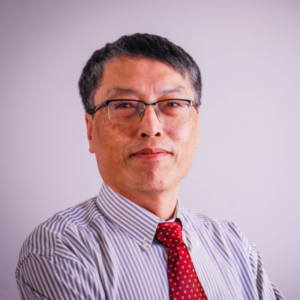 Antonio Kung is co-founder of Trialog. With more than 30 years of experience in the field of cyber physical systems and the Internet of Things, he brings expertise and know-how particularly on architecture, interoperability or data security and protection. He was the coordinator of numerous national and European collaborative projects in these fields. He is active in standardization on the Internet of Things, security and data protection, and the editor of ISO/IEC standards 27550 (published), 27556, 27400, 27570 (published), 21823-3, 30149. He became CEO of Trialog in 2018. Antonio has a master degree from Harvard university and an engineering degree from Ecole centrale Paris.
Antonio Kung is co-founder of Trialog. With more than 30 years of experience in the field of cyber physical systems and the Internet of Things, he brings expertise and know-how particularly on architecture, interoperability or data security and protection. He was the coordinator of numerous national and European collaborative projects in these fields. He is active in standardization on the Internet of Things, security and data protection, and the editor of ISO/IEC standards 27550 (published), 27556, 27400, 27570 (published), 21823-3, 30149. He became CEO of Trialog in 2018. Antonio has a master degree from Harvard university and an engineering degree from Ecole centrale Paris.
Max Lemke, Head of Unit for Internet of Things in Directorate General CONNECT, European Commission, Brussels, Belgium
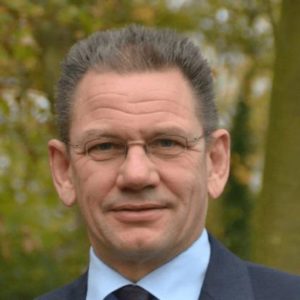 Dr. Max Lemke, Head of Unit for Internet of Things in Directorate General CONNECT of the European Commission, is responsible for programs under Horizon 2020 on the digital transformation of key industrial sectors, including in particular agri-food, smart energy and mobility. He is as well engaged in the preparation of the new programs under the next Multi-Annual Financial Framework 2021 – 27 (Horizon Europe, Digital Europe, etc.), in particular in areas such as smart IoT, edge computing, digital transformation of industry and digital industrial spaces and platforms. Previously, Max Lemke had a leading role in developing and coordinating the Digitizing European Industry strategy and was involved in developing the European Strategy for Artificial Intelligence. Dr. Lemke was responsible for the areas embedded and cyber-physical systems, advanced computing, and ICT for manufacturing (Industry 4.0). He was co-responsible in CONNECT for the Joint Technology Initiative ECSEL (Electronic Components and Systems for European Leadership), the Public Private Partnership Factories of the Future and the pan-European network of Digital Innovation Hubs. In the first half of 2020, Max was a European Union Fellow and visiting scholar at Henry M. Jackson School of International Studies of University of Washington in Seattle. He has conducted a study on “The digital industrial ecosystems in the Pacific Northwest” and taught as a guest professor a course on “Geopolitics of innovation: The US, the EU and China”. Before joining the Commission in 1995, Max has worked in research and industry in Germany around Fraunhofer, the US, and the UK. With a Diploma in Mathematics and Computer Science and a Doctorate in Natural Sciences, he has a scientific background in numerical mathematics, high performance computing, and software engineering.
Dr. Max Lemke, Head of Unit for Internet of Things in Directorate General CONNECT of the European Commission, is responsible for programs under Horizon 2020 on the digital transformation of key industrial sectors, including in particular agri-food, smart energy and mobility. He is as well engaged in the preparation of the new programs under the next Multi-Annual Financial Framework 2021 – 27 (Horizon Europe, Digital Europe, etc.), in particular in areas such as smart IoT, edge computing, digital transformation of industry and digital industrial spaces and platforms. Previously, Max Lemke had a leading role in developing and coordinating the Digitizing European Industry strategy and was involved in developing the European Strategy for Artificial Intelligence. Dr. Lemke was responsible for the areas embedded and cyber-physical systems, advanced computing, and ICT for manufacturing (Industry 4.0). He was co-responsible in CONNECT for the Joint Technology Initiative ECSEL (Electronic Components and Systems for European Leadership), the Public Private Partnership Factories of the Future and the pan-European network of Digital Innovation Hubs. In the first half of 2020, Max was a European Union Fellow and visiting scholar at Henry M. Jackson School of International Studies of University of Washington in Seattle. He has conducted a study on “The digital industrial ecosystems in the Pacific Northwest” and taught as a guest professor a course on “Geopolitics of innovation: The US, the EU and China”. Before joining the Commission in 1995, Max has worked in research and industry in Germany around Fraunhofer, the US, and the UK. With a Diploma in Mathematics and Computer Science and a Doctorate in Natural Sciences, he has a scientific background in numerical mathematics, high performance computing, and software engineering.
Serge Fdida, Sorbonne Université, SLICES, Paris, France
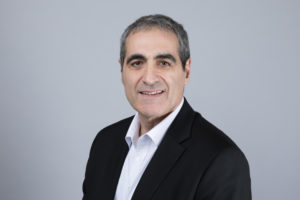 Serge Fdida is a Professor with Sorbonne Université since 1995. His research interests are related to the future internet as well as the design of federated testbeds to support experimentally driven research. He has been leading many research projects n France and Europe, notably pioneering the European activity on Internet test platforms. He is currently coordinating several EU H2020 projects in this domain including the SLICES initiative. Serge Fdida has published numerous scientific papers, in addition to a few patents and one rfc. He is a Distinguished ACM Member and an IEEE Senior member.
Serge Fdida is a Professor with Sorbonne Université since 1995. His research interests are related to the future internet as well as the design of federated testbeds to support experimentally driven research. He has been leading many research projects n France and Europe, notably pioneering the European activity on Internet test platforms. He is currently coordinating several EU H2020 projects in this domain including the SLICES initiative. Serge Fdida has published numerous scientific papers, in addition to a few patents and one rfc. He is a Distinguished ACM Member and an IEEE Senior member.
Kevin Doolin, Telecommunications Software and Systems Group (TSSG), Waterford Institute of Technology, Waterford, Ireland
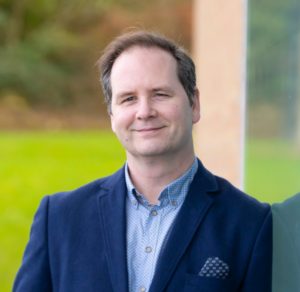 In this role, Kevin is responsible for oversight and strategic direction of TSSG’s Applied and Commercial Research Activities. He plays a key role in driving the TSSG Research Units and staff to get involved in EU applied research, and the EI ComFund, driving proposal strategies for all relevant research funding calls including, but not limited to, the key cross-unit decisions, assisting in commercial, research and proposal development of each unit.
In this role, Kevin is responsible for oversight and strategic direction of TSSG’s Applied and Commercial Research Activities. He plays a key role in driving the TSSG Research Units and staff to get involved in EU applied research, and the EI ComFund, driving proposal strategies for all relevant research funding calls including, but not limited to, the key cross-unit decisions, assisting in commercial, research and proposal development of each unit.
Kevin’s area of expertise is Pervasive Computing, which is the forerunner to ‘Internet of Things’ (IoT). Kevin has been involved in this space since he joined TSSG in 2004. Kevin has already coordinated a number of key EU projects in this space, for example the €15M EU flagship project, which closed in April 2014 and received significant praise from expert scientific reviewers. Kevin describes the project, “SOCIETIES focuses on bridging the gap between pervasive and social computing and enables the establishment of dynamically formed networks of people and things which can in turn be offered personalized mobile services”. SOCIETIES is detailed in two key magazines produced during the project.
Kevin is currently coordinating the 60 partner, €17m, H2020 Project DEMETER (https://h2020-demeter.eu/), which focuses on full supply chain interoperability in the Agriculture sector.
Kevin was the founder of a TSSG startup called ‘Fuseami’. Fuseami provides a service whereby attendees at events and conferences can discover each other based on their degree of relevance.
Martin Brynskov, Chair of OASC, Aahrus University, Aarhus, Denmark
 Martin Brynskov is chair of the global Open & Agile Smart Cities initiative (OASC), which encompasses more than 150 cities from 31 countries. OASC is a non-profit association based in Brussels, Belgium, and it aims to develop so-called Minimal Interoperability Mechanisms (MIMs) for cities and communities. Dr Brynskov is associate professor, PhD, in Interaction Technologies at Aarhus University in Denmark, director of the Centre for Digital Transformation of Cities and Communities (DITCOM) and AU Smart Cities (AUSC), founder and co-director of the Digital Living Research Commons (DLRC), director of the Digital Design Lab, and fellow at the Centre for Advanced Visualization and Interaction (CAVI). Dr Brynskov is the coordinator of the Coordination and Support Action, Next Generation Internet of Things (NGIoT). He is a global expert, speaker, and advisor on IoT and smart cities with a human-centric focus. Dr Brynskov is vice-chair of the UN ITU-T Focus Group on Data Processing and Management to support IoT and Smart Cities & Communities (FG-DPM) and chair of the Working Group on Use Cases, Requirements and Applications/Services, and Chair of the Danish Standards Committee on Smart Cities and Communities (ISO TC 268 mirror committee).
Martin Brynskov is chair of the global Open & Agile Smart Cities initiative (OASC), which encompasses more than 150 cities from 31 countries. OASC is a non-profit association based in Brussels, Belgium, and it aims to develop so-called Minimal Interoperability Mechanisms (MIMs) for cities and communities. Dr Brynskov is associate professor, PhD, in Interaction Technologies at Aarhus University in Denmark, director of the Centre for Digital Transformation of Cities and Communities (DITCOM) and AU Smart Cities (AUSC), founder and co-director of the Digital Living Research Commons (DLRC), director of the Digital Design Lab, and fellow at the Centre for Advanced Visualization and Interaction (CAVI). Dr Brynskov is the coordinator of the Coordination and Support Action, Next Generation Internet of Things (NGIoT). He is a global expert, speaker, and advisor on IoT and smart cities with a human-centric focus. Dr Brynskov is vice-chair of the UN ITU-T Focus Group on Data Processing and Management to support IoT and Smart Cities & Communities (FG-DPM) and chair of the Working Group on Use Cases, Requirements and Applications/Services, and Chair of the Danish Standards Committee on Smart Cities and Communities (ISO TC 268 mirror committee).
Rolf Riemenschneider, Head of Sector “Internet of Things”, DG CONNECT, European Commission, Brussels, Belgium
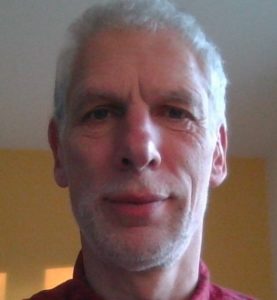
Rolf Riemenschneider is involved in the research and innovation program Horizon 2020 where he gained experience in research and innovation project management and European policies in the following areas: Advanced Computing, Cyber Physical Systems, Factories of the Future and Internet of Things. From 2009-2015, he managed the ICT activities of the Public-Private Partnership Factories of the Future (PPP FOF). Since 2015, he coordinates the cross-cutting activities related to Internet of Things in Horizon 2020 across different policy streams with DG AGRI, DG ENER, DG MOVE and DG GROW.
Inside DG Connect, he leads the research, innovation and deployment of the next generation of the IoT with strong computing capacity at the edge exploring features like device virtualization, interoperability, real-time, energy efficiency and distributed intelligence. As an emerging innovation domain, his key objective is to establish European supply and value chains in cloud to edge to IoT applications and the tactile internet by integrating relevant elements of computing, connectivity, IoT and AI.
One of the key horizontal activities related to achieving the targets of the Green Deal, encompasses the Digitization of the Energy System, which includes IoT-driven interoperable solutions and products, available especially in the home and buildings, to enable an increased flexibility in energy consumption, foster the integration of renewable energy, and flexible charging of electric vehicles as well as innovative application and services across sectors like home, building, energy and mobility.
Wednesday June 23rd, 2021 — Plenary Panel — 10:30am-12:30pm
“Platform for Advanced Wireless Research (PAWR) – Testbeds for IoT: Program Directions and Results”
Panel Moderator: Thyaga Nandagopal, NSF, Alexandria, VA USA
https://www.nsf.gov/funding/pgm_summ.jsp?pims_id=505904
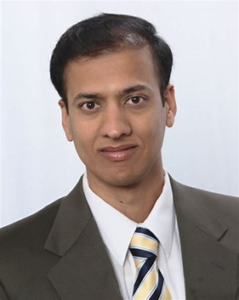 Dr. Thyagarajan Nandagopal serves in the Directorate of Computer & Information Science and Engineering (CISE) of the National Science Foundation. He is the Deputy Division Director (DDD) for the Division of Computing and Communication Foundations (CCF). Prior to his DDD position he managed wireless networking and mobile computing research within the Networking Technologies and Systems (NeTS) program at NSF. He has been with the Foundation since February 2012.
Dr. Thyagarajan Nandagopal serves in the Directorate of Computer & Information Science and Engineering (CISE) of the National Science Foundation. He is the Deputy Division Director (DDD) for the Division of Computing and Communication Foundations (CCF). Prior to his DDD position he managed wireless networking and mobile computing research within the Networking Technologies and Systems (NeTS) program at NSF. He has been with the Foundation since February 2012.
He has managed networking and mobile computing research within the NeTS program, and contributed to several other crosscutting programs, including Spectrum Efficiency, Energy Efficiency, and Security (SpecEES) and Industry/University Collaborative Research Centers (IUCRC). He has built coalitions in support of new research directions, including leading the establishment of the Platforms for Advanced Wireless Research (PAWR) program, which has garnered $50 million in cash and in-kind contributions from an industry consortium of about 30 wireless networking companies and technology associations. He serves as co-chair of the Wireless Spectrum Research and Development (WSRD) Interagency Working Group.
Before joining NSF, Dr. Nandagopal spent 10 years as a Member of the Technical Staff at Bell Labs/Alcatel-Lucent Bell Labs. His research interests dealt with networking in the cloud, green networking, and software-defined networks. In this role, he helped pioneer the development of the first commercial carrier-grade software-defined network platform (ALU 9980 AINP) between 2006 and 2008, with industry-leading features such as service-chaining and network function virtualization. He also worked extensively on wireless ad hoc/mesh networks and sensors/RFID systems, with specific focus on algorithms for enabling efficient operations of these systems.
Dr. Nandagopal holds 38 US patents awarded and several patents pending and has published numerous papers in highly regarded conferences and journals in the field. He has also served as program chair or co-chair for many technical program committees, and Associate Editor for IEEE Transactions on Mobile Computing. Dr. Nandagopal is a Fellow of the Institute of Electrical and Electronics Engineers (IEEE).
Dr. Nandagopal holds a Ph.D. in electrical engineering from the University of Illinois at Urbana-Champaign (UIUC); M.S. degrees in applied mathematics and computer engineering from UIUC; and a B.Eng. in electronics and communication engineering from Anna University (Chennai, India).
Kobus Van der Merwe, University of Utah, Salt Lake City, UT USA
http://powderwireless.net
 Kobus Van der Merwe is the Jay Lepreau Professor in the School of Computing and Director of the Flux Research Group at the University of Utah. He joined the University of Utah in 2012 after fourteen years at AT&T Labs – Research. He does networking systems research in a broad range of areas including network management, control and operation, mobile networking, network evolution, network security and cloud computing. He is the PI and Director of the POWDER project (Platform for Open Wireless Data-driven Experimental Research), one of the NSF PAWR platforms.
Kobus Van der Merwe is the Jay Lepreau Professor in the School of Computing and Director of the Flux Research Group at the University of Utah. He joined the University of Utah in 2012 after fourteen years at AT&T Labs – Research. He does networking systems research in a broad range of areas including network management, control and operation, mobile networking, network evolution, network security and cloud computing. He is the PI and Director of the POWDER project (Platform for Open Wireless Data-driven Experimental Research), one of the NSF PAWR platforms.
Title: PAWR COSMOS Platform: Cloud Enhanced Open Software Defined Mobile Wireless Testbed for City-Scale Deployment
Ivan Seskar, WINLAB, Rutgers University, New Brunswick, NJ USA
http://cosmos-lab.org
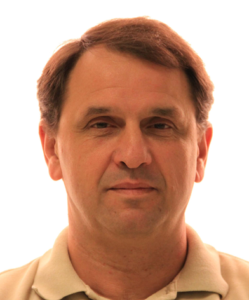 Ivan Seskar is the Chief Technologist at WINLAB, Rutgers University responsible for experimental systems and prototyping projects. He is currently the program director for the COSMOS project responsible for the New York City NSF PAWR deployment. He has also been the co-PI and project manager for all three phases of the NSF-supported ORBIT mid-scale testbed project at WINLAB, successfully leading technology development and operations since the testbed was released as a community resource in 2005 and for which the team received the 2008 NSF Alexander Schwarzkopf Prize for Technological Innovation. Ivan is a co-chair of the IEEE Future Networks Testbed Working Group, a Senior Member of the IEEE, a member of ACM and the co-founder and CTO of Upside Wireless Inc
Ivan Seskar is the Chief Technologist at WINLAB, Rutgers University responsible for experimental systems and prototyping projects. He is currently the program director for the COSMOS project responsible for the New York City NSF PAWR deployment. He has also been the co-PI and project manager for all three phases of the NSF-supported ORBIT mid-scale testbed project at WINLAB, successfully leading technology development and operations since the testbed was released as a community resource in 2005 and for which the team received the 2008 NSF Alexander Schwarzkopf Prize for Technological Innovation. Ivan is a co-chair of the IEEE Future Networks Testbed Working Group, a Senior Member of the IEEE, a member of ACM and the co-founder and CTO of Upside Wireless Inc
Ismail Guvenc, North Carolina State University, Raleigh, NC USA
http://aerpaw.org
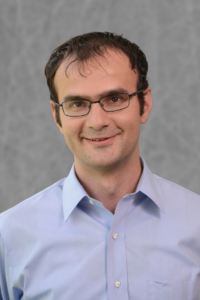 Ismail Guvenc is a Professor at the Department of Electrical and Computer Engineering in North Carolina State University. His recent research interests include 5G/6G wireless networks, UAV communications, millimeter/terahertz communications, and heterogeneous networks. He has published more than 300 conference/journal papers and book chapters, several standardization contributions, four books, and over 30 U.S. patents. Dr. Guvenc is the PI and the director for the NSF AERPAW project and a site director for the NSF BWAC I/UCRC center. He is an IEEE Fellow, a senior member of the National Academy of Inventors, and recipient of several awards, including NC State University Faculty Scholar Award (2021), R. Ray Bennett Faculty Fellow Award (2019), FIU COE Faculty Research Award (2016), NSF CAREER Award (2015), Ralph E. Powe Junior Faculty Award (2014), and USF Outstanding Dissertation Award (2006).
Ismail Guvenc is a Professor at the Department of Electrical and Computer Engineering in North Carolina State University. His recent research interests include 5G/6G wireless networks, UAV communications, millimeter/terahertz communications, and heterogeneous networks. He has published more than 300 conference/journal papers and book chapters, several standardization contributions, four books, and over 30 U.S. patents. Dr. Guvenc is the PI and the director for the NSF AERPAW project and a site director for the NSF BWAC I/UCRC center. He is an IEEE Fellow, a senior member of the National Academy of Inventors, and recipient of several awards, including NC State University Faculty Scholar Award (2021), R. Ray Bennett Faculty Fellow Award (2019), FIU COE Faculty Research Award (2016), NSF CAREER Award (2015), Ralph E. Powe Junior Faculty Award (2014), and USF Outstanding Dissertation Award (2006).
Talk title: AERPAW: Aerial Experimentation and Research Platform for Advanced Wireless
Abstract: In this talk, we will overview AERPAW: Aerial Experimentation and Research Platform for Advanced Wireless. AERPAW is one of the NSF PAWR projects funded by the National Science Foundation that aim to develop large-scale advanced-wireless experimentation platforms. A unique aspect of AERPAW will be to support emerging 5G wireless and Internet of things (IoT) experimental research involving unmanned aerial vehicles. AERPAW users will have the opportunity to design and rapidly prototype next-generation wireless technology, systems, and applications in both emulated and real-world environments. This talk will review the overall scope and plans for the project, experimentation equipment that will be supported, deployment environments, and user interface.
Abhimanyu Gosain, Northeastern University, Boston, MA USA
http://advancedwireless.org/
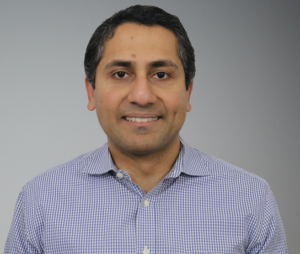 Abhimanyu (Manu) Gosain is a Senior Technical Program Director for PAWR , Director of Industry Engagement for Institute of Wireless Internet of Things at Northeastern University and Director of OpenAirX-Labs. In this role, he is in charge of setting strategic goals and the research agenda for a $100M public-private partnership for the NSF Platforms for Advanced Wireless Research (PAWR) program and $25M DARPA Colosseum program. He serves as a Board Member for the OpenAirInterface Software Alliance, Founding member for Magma Core Foundation, university representative for O-RAN Alliance, Telecom Infra Project and co-chair on organizing committee and program committees for 6GSymposium, EuCNC,IEEE InfoCom and ACM WinTech. His numerous professional publications and experience exemplify use-inspired basic research in the field of networking technologies such as LTE, 5G, AI/ML, edge computing and Internet of Things. He is an IEEE Senior Member. He received his M.S. degree from Tufts University and M.B.A. from Boston University with High Honors.
Abhimanyu (Manu) Gosain is a Senior Technical Program Director for PAWR , Director of Industry Engagement for Institute of Wireless Internet of Things at Northeastern University and Director of OpenAirX-Labs. In this role, he is in charge of setting strategic goals and the research agenda for a $100M public-private partnership for the NSF Platforms for Advanced Wireless Research (PAWR) program and $25M DARPA Colosseum program. He serves as a Board Member for the OpenAirInterface Software Alliance, Founding member for Magma Core Foundation, university representative for O-RAN Alliance, Telecom Infra Project and co-chair on organizing committee and program committees for 6GSymposium, EuCNC,IEEE InfoCom and ACM WinTech. His numerous professional publications and experience exemplify use-inspired basic research in the field of networking technologies such as LTE, 5G, AI/ML, edge computing and Internet of Things. He is an IEEE Senior Member. He received his M.S. degree from Tufts University and M.B.A. from Boston University with High Honors.
Hongwei Zhang, Iowa State University (ISU), USA
 Prof. Hongwei Zhang leads the Dependable Networking and Computing research group (DNCRG) in the Department of Electrical and Computer Engineering at Iowa State University (ISU). He is also a courtesy faculty member in the Department of Computer Science at ISU. Before joining ISU, he was with Wayne State University.
Prof. Hongwei Zhang leads the Dependable Networking and Computing research group (DNCRG) in the Department of Electrical and Computer Engineering at Iowa State University (ISU). He is also a courtesy faculty member in the Department of Computer Science at ISU. Before joining ISU, he was with Wayne State University.
Prf. Zhang’s research explores theories, methods, and systems building-blocks for addressing dynamics and uncertainties in networked systems. Presently, the DNCRWG is especially interested in the modeling, algorithmic, and systems issues in wireless sensing and control networks (e.g., those in 5G and beyond) as well as their applications in mixed reality, connected and automated vehicles, smart agriculture, smart energy grid, industrial IoT, and cyber-physical-human systems in general. For instance, as a part of the CPS, NeTS, US Ignite, CC*, and GOALI programs of NSF and in collaboration with industry, the Group has been investigating field-deployable mechanisms for predictable, real-time wireless networking as well as their integration with SDN and edge/cloud computing infrastructures for mission-critical control and AR/VR applications. (YouTube videos discussing our work on wireless networked 3D vision: US Ignite demo, GENI demo.) As a part of the NSF GENI program, the Group has developed theoretical and systems foundations for experimentation and service provisioning in connected and automated vehicles as well as in federated, networked sensing.
Prof. Zhang received the NSF CAREER Award in 2011. His work has been recognized by the Best Demo Award at the 23rd and 21st NSF GENI Engineering Conference in 2015 and 2014 respectively, and the Best Demo First Runner-up Award at the 20th NSF GENI Engineering Conference in 2014. His articles have been selected for the Annual Best Paper of the Journal of Systems Science and Complexity (Springer) in 2016, the Spotlight Paper of the IEEE Transactions on Mobile Computing in November 2010, and a Best Paper Candidate at the IEEE International Conference on Network Protocols (ICNP) in 2010. The work has also been featured by public media such as TechCrunch, Broadband World News, telecompetitor, Inside Towers, Computing Community Consortium (CCC), Science X, SmartPlanet, EurekAlert!, Model D, Innovation Iowa, Ames Tribune, Nevada Journal, UMTRI Connected Vehicle News, Michigan University Research Corridor News, Wayne State University New Science Magazine, CBS, and Today@Wayne



